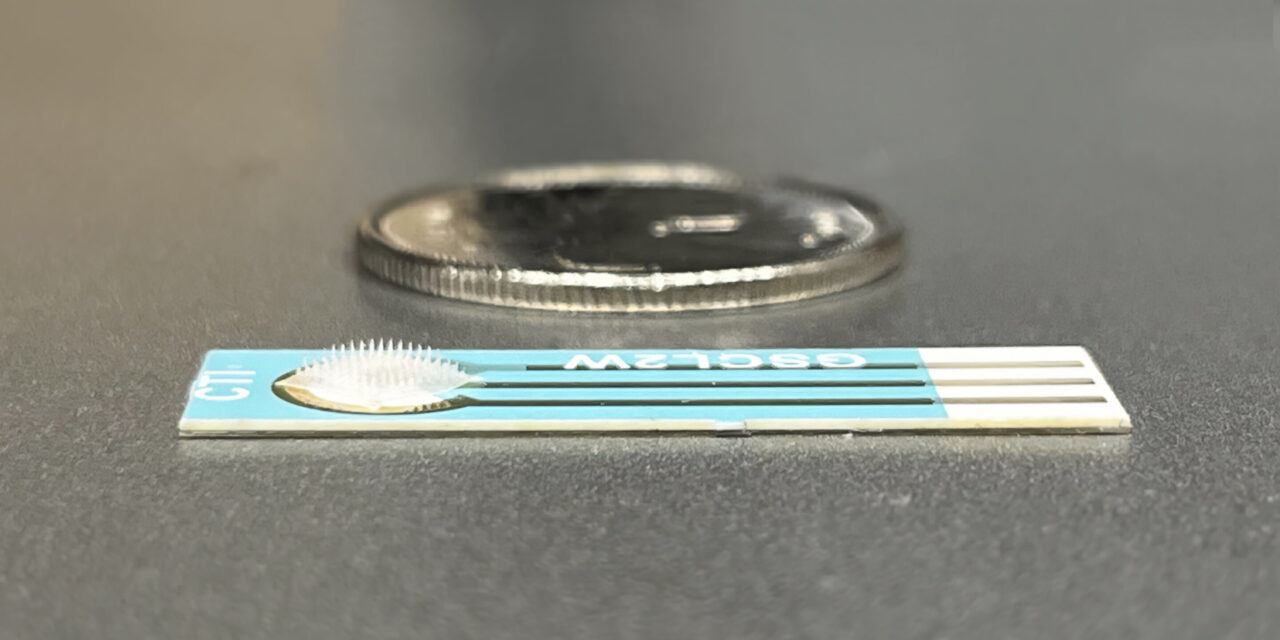Ontario, June 19, 2024 — In a groundbreaking development, researchers at McMaster University and the University of Waterloo have introduced a revolutionary wearable sensor, the Wearable Aptalyzer. This innovative device promises a painless and continuous monitoring solution for critical health indicators, sending real-time data directly to a smartphone or similar device.
The Wearable Aptalyzer employs an array of minuscule hydrogel needles that penetrate the skin just enough to access interstitial fluid, avoiding blood vessels and nerves. This design enables the sensor to gather essential health data without causing discomfort. The patch can monitor blood sugar, lactates, and other critical biomarkers continuously for weeks, providing a comprehensive record of health patterns.
Advancement in Health Monitoring
The potential of the Wearable Aptalyzer lies in its ability to provide immediate medical insights, which are currently available only through retrospective blood tests and lab work. As detailed in the journal Advanced Materials, this technology represents a significant leap forward in health monitoring, transforming how we track chronic and acute conditions.
“This technology can provide real-time information about both chronic and acute health conditions, allowing caregivers to act more quickly and with greater certainty when they see trouble,” explains Leyla Soleymani, a professor of Engineering Physics at McMaster and one of the corresponding authors. “The Wearable Aptalyzer is a general platform, meaning it can measure any biomarkers of interest, ranging from diabetes to cardiac biomarkers,” adds Mahla Poudineh, an assistant professor at Waterloo and co-author of the paper.
User-Friendly and Versatile
The patch’s user-friendly design, which attaches like a small bandage with soft hooks, offers a significant improvement over existing monitoring methods that require blood samples or deeper-penetrating metal needles. This convenience is expected to appeal to diabetics and others who require frequent testing.
Moreover, the ability of the Wearable Aptalyzer to provide extensive data over weeks and transmit it to electronic devices for expert analysis without sophisticated equipment highlights its versatility. This capability is particularly promising for monitoring cardiac events in real-time, which could be crucial in emergency settings such as ambulances and emergency rooms.
Broader Implications and Future Steps
Beyond its immediate applications, the Wearable Aptalyzer could also benefit remote care settings, such as northern Indigenous communities and space missions, where timely medical intervention is critical. By signaling issues before symptoms appear, the device can ensure patients receive prompt care.
The researchers are now focusing on human trials and seeking regulatory approvals to bring the technology to market. They are also looking for partners to help commercialize the device.
Research Team and Publication
The lead authors of the study are Fatemeh Bakhshandeh from McMaster and Hanjia Zheng from Waterloo. They collaborated with Soleymani, Poudineh, and other co-authors, including Sadegh Sadeghzadeh, Irfani Ausri, Fatemeh Keyvani, Fasih Rahman, Joe Quadrilatero, and Juewen Liu from Waterloo, and Nicole Barra, Payel Sen, and Jonathan Schertzer from McMaster.
For more detailed information, refer to the paper titled Wearable Aptalyzer Integrates Microneedle and Electrochemical Sensing for In Vivo Monitoring of Glucose and Lactate in Live Animals published in Advanced Materials.
This development marks a significant milestone in wearable health technology, promising a future where continuous health monitoring is as seamless and effortless as tracking vital signs.












